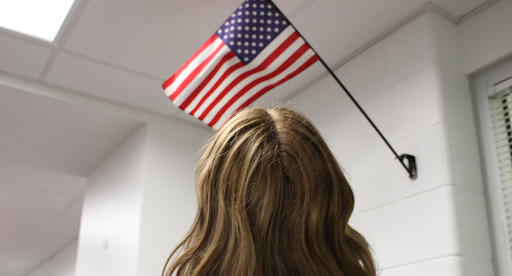
As colleges are making mainstream news for political reasons, high school seniors choosing their home for the next four years are considering the thoughts, ideas and politics of their future neighbors on an academic campus.
A Gallup Survey concluded a quarter of future students crossed off universities for the sole reason of the political environment.
“It’s important for students to feel comfortable in their school and have a place in the community of the student body, but an ideal school likely would not have all students of 100% one political orientation, as this would make it difficult for students to become comfortable with those whose ideas are different from their own, which is a important part of life after college,” said senior Julia Murray, who will attend University of Virginia.
Some seniors are omitting entire universities and the states they are located in off of their application list based on the current political climate.
“Politics really did play into the picture for me, as I decided not to apply to any SEC or other schools in the south that had extremist views on women’s rights and abortion, because I didn’t want that to be an issue while I was in college,” said senior Addie Craighead, who decided not to apply to University of Georgia, University of Florida, and University of Tennessee.
College and Career Specialist Jeff Toomer warns against narrowing down a college list too much, as college should be a time to expand your worldview.
“In my experience, the preferred college experience is not homogenous. It does not help a student to grow in thought, opinion, academic learning, or to even have a fulfilling social life, et cetera if he or she is only surrounded by people who think like they do,” said Toomer.
Senior Madison Abicht agrees and stresses that seniors should consider all amenities a university has to offer.
“If a college had everything I wanted but a majority different opinion, I would do some research on how strong of an affiliation the school has,” said Abicht. “It’s important to me that colleges allow their students to voice their opinions, so attending a college that leaned heavily in one affiliation would be difficult for me.”
Future University of Lynchburg swimmer senior Sienna Schmeck placed participating in collegiate sports as a top consideration when deciding on a school.
“I don’t think [political opinions] should [play a part in the college decision making process] and schools should be picked more for the environment that you want to be in and for your major,” said Schmeck.
Toomer advises students to enter college “with an open mind, wanting to hear and learn viewpoints that differ from their own.” He does report that the students he meets with are concerned most with academic, financial, professional and cultural fit.






![According to the FCPS Restorative Justice Brochure, restorative justice comes with seven primary goals. Part of building the welcoming community comes through the class circle process. “It’s voluntary and everything that is said there is confidential,” said counselor Monica Hayes. “It’s the beginning of those [strong] relationships [in the community].”](https://theoracleonline.org/wp-content/uploads/2024/04/unnamed-28.png)
